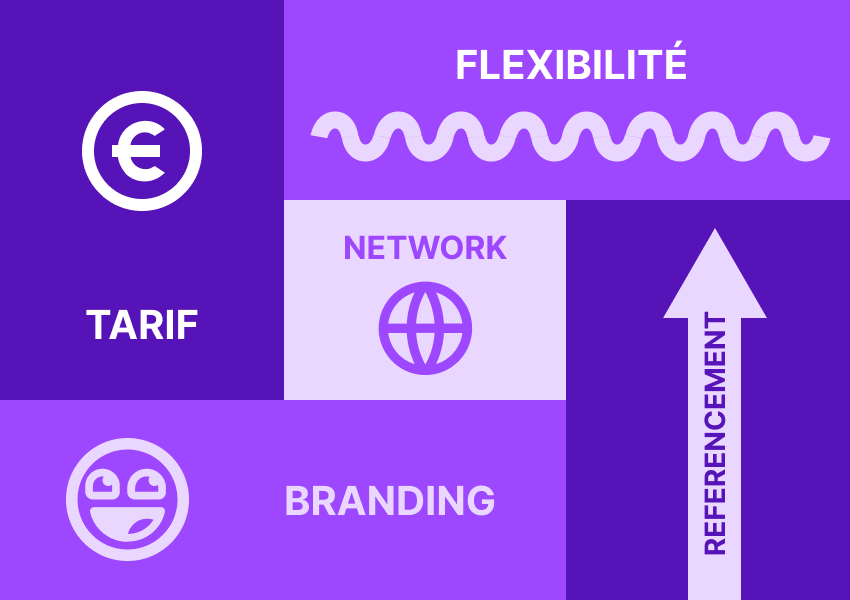How freelancing has become widely democratized within companies
Freelancing, an answer to the need for flexibility in companies
Many companies were still reluctant to work with freelancers a few years ago. But that time is well and truly over: today, they widely approve freelancers, regardless of the company size, whether start-ups or large groups.
And for a good reason, freelancers offer great flexibility to companies. They offer on-demand services that adapt to the latter’s needs and are often project base, which is increasingly used within organizations.
By working with freelancers, companies reduce labor costs, as they don’t have to pay vacation, health insurance, or retirement benefits. This saves them money on their payroll
Companies also reduce their risks as freelancers bear their financial responsibility. In case of difficulties, it is much easier to terminate a freelancer’s service than to fire an employee. And this is a particularly decisive advantage in times of inflation and economic uncertainty.
Freelancing, a solution to the war for talent
In a world where companies find recruiting increasingly difficult, freelancing is emerging as a solid alternative to traditional recruitment. This is especially true in sectors with extreme skills shortages, such as tech and digital.
Freelancers often have specialized skills in technical fields, and companies can call upon their expertise for specific projects on which they bring substantial added value.
The trend is reinforced by the emergence of multiple platforms and intermediaries that make freelancers ever more accessible to companies seeking talent.
The extended company is a factor in the development of freelancing
Freelancing has become so popular in companies that they deploy initiatives to attract and retain their freelance talent. Freelancing is gradually being integrated into the global management of human resources. This is why we’re hearing more people talk about the extended company.
An extended company refers to all stakeholders participating in an organization’s value-creating process. It includes employees and partners to whom the company outsources part of its activities, such as agencies, consulting companies, and freelancers.
The demand for freelancers is booming for many reasons. We can also see the opposite phenomenon: self-employment is attracting more and more people, despite the current rather morose economic context.
Why freelancing is appealing to more and more workers
The advent of self-employment: a fundamental trend
If we thought that the rise of freelancing would be a temporary trend, we have to admit that this structure continues to grow and is establishing itself as a sustainable way of working.
Even more freelancers in France: For example, between 2017 and 2022, independent micro-businesses doubled from 317,500 to 656,400, according to a report by Insee.
The Covid crisis, the Big Quit, and the current tech crisis are also pushing more and more employees to take the plunge into freelancing.
The employee status is losing popularity
Career patterns have changed dramatically. If a few decades ago, it was still common to stay in the same company your entire life. Multiplying short experiences or changing jobs several times is now widespread.
A loss of attractiveness for the employee workforce supports this underlying trend. The security and stability it provides are no longer workers’ holy grail. On the contrary, working people are turning more and more to freelancing to :
- To obtain better pay, especially in these tough economic times, when seeing growth in income is difficult.
- Working on various projects, To a certain extent, you can choose the projects you work on, develop specific skills, and be continually challenged
A thirst for freedom and high expectations in terms of quality of life
Moreover, freelancing is winning over more people, regardless of their sex, age, seniority, or profession, because of the independence and freedom it gives. Many employees decide to start freelancing to be able to choose their hours, work from where they want, and decide on their vacation dates without asking anyone’s permission.
They are free from hierarchy and the restrictions of the corporate world, even if this freedom must be qualified: self-employment has its limits too!
At a time when the world of work is marked by solid awareness, many active people are choosing to work independently to exercise an activity more in line with their values
To summarize, freelancing offers many advantages for freelancers and companies. This explains why it’s booming, even in difficult economic times.



